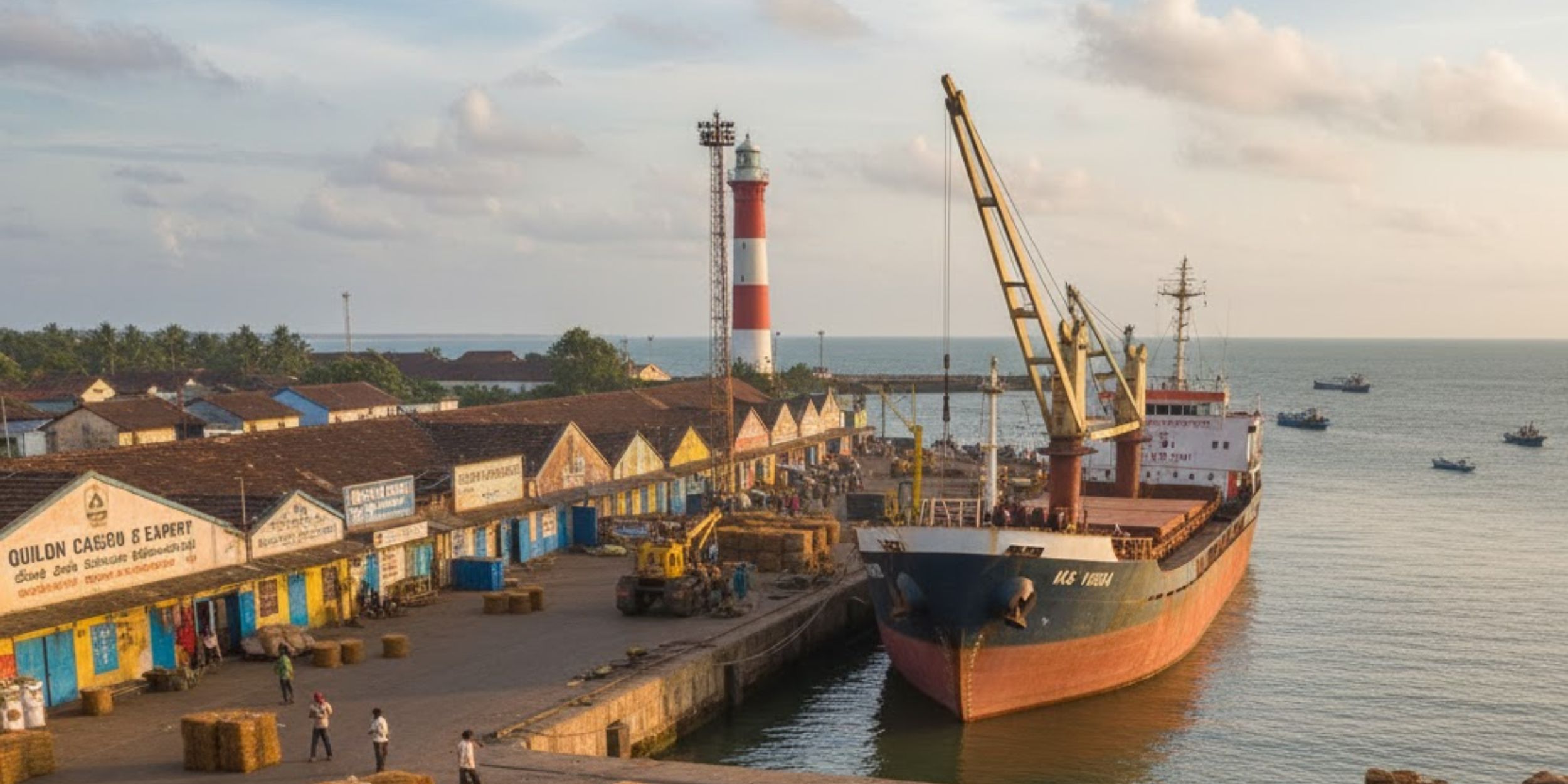Introduction
Nestled along the Malabar Coast, the Port of Quilon, also known as Kollam Port, is one of Kerala's historic and strategically important ports. With a legacy that traces back centuries, Quilon Port has evolved to cater to both domestic and international trade. Known for its specialized handling of coir, cashew, and other minor cargo, it continues to be a vital hub for regional commerce.
Specialized Cargo Handling
The port’s key strength lies in its expertise in handling coir products and cashew nuts, two of Kerala's most iconic commodities. Coir products, ranging from ropes to mats, find easy passage through Quilon Port, supporting local artisans and businesses. Similarly, the port plays a critical role in the cashew trade, ensuring smooth export and import operations while maintaining quality and efficiency.
Besides these, the port also manages minor cargo, including timber, spices, and other agricultural products, providing small and medium businesses an accessible gateway to global markets.
Strategic Location
Located in Kollam, the port enjoys proximity to Kerala’s major industrial and agricultural centers. Its location along the Arabian Sea ensures seamless maritime connectivity, enabling vessels to dock easily and cargo to move efficiently. This geographic advantage strengthens Quilon Port’s position as a key player in regional trade.
Infrastructure and Facilities
Although smaller than major container ports, Quilon Port is well-equipped for bulk and minor cargo operations. It features modern storage facilities, cargo handling equipment, and berthing spaces suitable for small to medium-sized vessels. The port continues to upgrade its infrastructure to accommodate growing trade demands, particularly in coir and cashew exports.
Economic and Regional Importance
Quilon Port significantly contributes to Kerala’s economy by promoting trade in coir, cashew, and other minor commodities. The port supports local employment, encourages small-scale industries, and provides an efficient route for export-oriented businesses. Its role in sustaining regional trade makes it an essential maritime asset for Kollam and surrounding districts.
Conclusion
The Port of Quilon may be modest in size compared to mega ports, but its specialized focus and strategic location make it indispensable for Kerala’s trade ecosystem. By efficiently handling coir, cashew, and minor cargo, it continues to support local industries while facilitating international trade. For businesses and stakeholders involved in maritime operations, understanding the strengths of Quilon Port can help leverage its potential for seamless trade.


